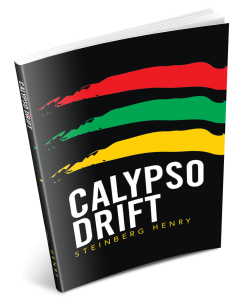 In our colonially structured high school history texts, Africa was a source of human cargo, not of knowledge and wisdom. Today, human cargo still leaves, though not on a scale as that registered throughout the Triangular Trade. It’s going on that we may now trace and grasp intricacies in Europe’s fifteenth-century intentional method of division and exploitation.
In our colonially structured high school history texts, Africa was a source of human cargo, not of knowledge and wisdom. Today, human cargo still leaves, though not on a scale as that registered throughout the Triangular Trade. It’s going on that we may now trace and grasp intricacies in Europe’s fifteenth-century intentional method of division and exploitation.
Those who, for four hundred years, chained and shipped Africa’s people to another world continue to sell its leaders and rebels arms …
Though efforts have been made to include the achievements of its kings, queens, and empires in school texts in the Caribbean– you know, those of Ghana, Songhai, and Mali — its contributions to human civilization are seldom explicitly presented, particularly to our young hearts and minds. We, students of the early 1970s did not wait. We asked for and received our knowledge of the greatness of Africa from the so-called intellectuals, not from our late-’60s headmaster/historian.
Thing is, from the beginning of the nineteenth century, when Britain finally had any dominant foothold in Dominica, the empire was resolved that all things French had to go. Europe’s battles would be fought on and in our territories, bodies, and minds.
Historian Dr. Cecil Goodridge embodied this with interest in his 1960s research. He proposed that it was going to be difficult to eradicate a French-Creole lexicon in Dominica. This impossibility was not simply a function of geography situated as the island is between two French departments, literally in Europe.
Principally, though, Dr. Goodridge cited recognized power inherent in language codes. He prided himself on being an English-speaking historian.
True, he identified a Protestant/Catholic tension sizzling in the Wesley/Marigot northeastern enclave of Dominica. But history did not appear to have for him in practice, at least, a reward methodology save for that which came in and off itself. Language was, it seemed, restricted to the spoken and written word.
He was the headmaster at the Dominica Grammar School when I started there in 1968. On occasions, he would come to teach us history when our usual history teacher was absent. He was excellent, but boys never cared or dared to participate. His punishment record, too British, too prominent for a student of West Indian history, had crossed over and affected mere processes of class interaction. We feared his informed tutelage undermined by a colonial legacy evident in heavy whippings.
True, he was Barbadian, deadly English, married to a Dominican princess, stock of a tal’, elegant Dominican family. True, his precise contribution to Aspects of Dominican History, printed and launched in 1972, will long be recognized for salvaging linguistic and educational potential and activities of people of Marigot and Wesley in the late nineteenth century.
Britain had freed their forefathers immediately in 1834, a space of interest to any historians seeking to resolve conflicts of empire, androgogy, and pedagogy. He spotted that Protestant and Catholic divide, even that Kokoy and English split. Yet from this fertile nexus, he could barely communicate assurance to students to whom he was master.
Here was a student of history, familiar with the very letter and traces of the Apprenticeship/Emancipation period yet choosing to practice behavior modification through aggressive physical punishment.
I believe Goodridge tried to stamp out from boys all things French and possibly unconsciously. I believe in the process, many were deprived of glimpses of their neocortical totality, if you wish.
I think that during Goodridge’s time, punishment and reward theories structured attitudes and lives of many teachers and students.
Science’s reductionist method was not known, and if it was known, it was presented as dominant and unquestioned paradigm. It was truth to many bright eyes.
Subject and object were unrelated, disconnected in a living eco-nature system that experiment and control methods tried to contain.
Those native geniuses of my time even began to look cold under the weight of manipulated objectivity.
Today, we must engage compassion and do justice to an intelligence that alienated patterns of emotions.
Carl Jung reminds us that emotion is the chief source of all becoming conscious. There can be no transforming of darkness into light and of apathy into movement without emotion. It is amazing where Jung was struck by light. Drift a little …
- Excerpt from Steinberg Henry’s “Calypso Drift, Segment 4/Chapter 26, 2014. calypsodrift.com. [email protected] —.

This is amazing we all need that and more
Wow, this is DEEP, a must read for our youth and society at large. My thanks to the writer.